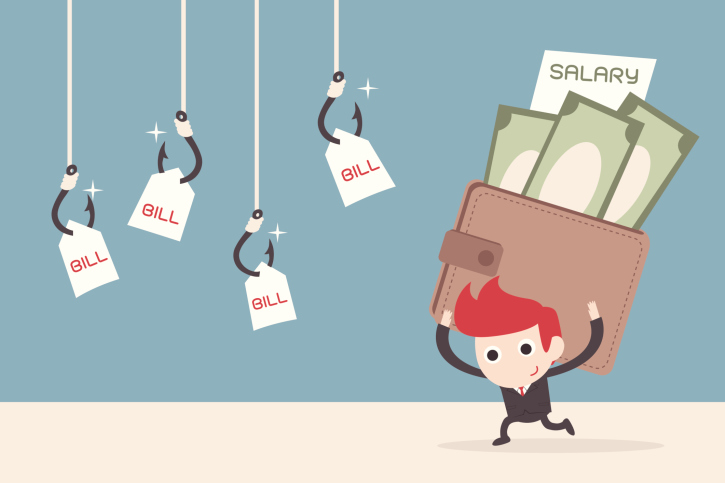Losing your income: how prepared are you for the unexpected?
 John Baird, of Scotland Debt Solutions, explains why preparation is key to surviving
the trauma of a lost income.
John Baird, of Scotland Debt Solutions, explains why preparation is key to surviving
the trauma of a lost income.
According to research by Legal & General, the average UK household could survive for just 29 days before being on the breadline, if their income was lost.
The 2014 ‘Deadline to Breadline’ report also highlighted several other sobering statistics:
- 35% of households have no savings, so for these people, their ‘deadline to the breadline’ could be tomorrow
- people believed they could survive more than twice as long (77 days on average) than the reality of 29 days
- 36% of households have no strategy in place to cope with financial hardship, compared with 35% in November 2013
Clearly, preparation is key to surviving the trauma of a lost income, whether it is the result of sickness, accident or redundancy.
Know your figures
It can be alarming to discover that you have lived beyond your means for years, but far safer to find this out before bankruptcy is your only option. By gathering together bank statements, loan and credit card information, and details of your monthly expenses, you’ll soon see if there is a risk of insolvency on loss of income.
Whatever the situation, you have an opportunity to improve it, but how do you move on to a more stable financial footing? There are two main elements to this process:
- prioritising and dealing with debts
- starting an emergency fund that could tide you over for at least 3 months
Prioritise debts
Looking at the potential repercussions of non-payment, it is clear that secured loans, rent payments, council tax and utilities fall into the category of ‘priority debts.’ Although it is tempting to pay off credit cards that attract the highest interest rates, this is unsecured borrowing and does not affect the ‘essentials’ of living, such as a roof over your head, heat, light and water.
Start an emergency fund
Paying into a financial emergency fund can be likened to insuring your own income. The difference being that you have total control over whether you are paid out. Aiming for 3 months’ worth of expenses is a good starting point, with 6 months being the optimum level, if you can afford it.
Pay down debt
Apart from your emergency fund, there is no benefit in saving money if you have credit cards or loans outstanding. You will be paying far greater rates of interest on these cards than rates offered to savers, and can enjoy a psychological boost by cutting your overall level of debt.
Mortgage payment protection
Various policies exist to protect your mortgage payments in the event of long-term sickness, accident and unemployment. Individual circumstances will dictate the value of taking out such a policy, however. These include the amount of sick pay you would receive from your employer, and how long you have worked for them.
Reduction of benefit allowances and an uncertain economy has made securing your financial position all the more important. You many think that it will not happen to you, but as the research revealed, 50% of respondents knew someone who had suffered a serious illness or injury.
About the author
John Baird is a personal finance expert from Scotland Debt Solutions, part of the Begbies Traynor Group. He advises individuals on money-related issues such as saving, attaining credit, and both formal and informal debt solutions.
